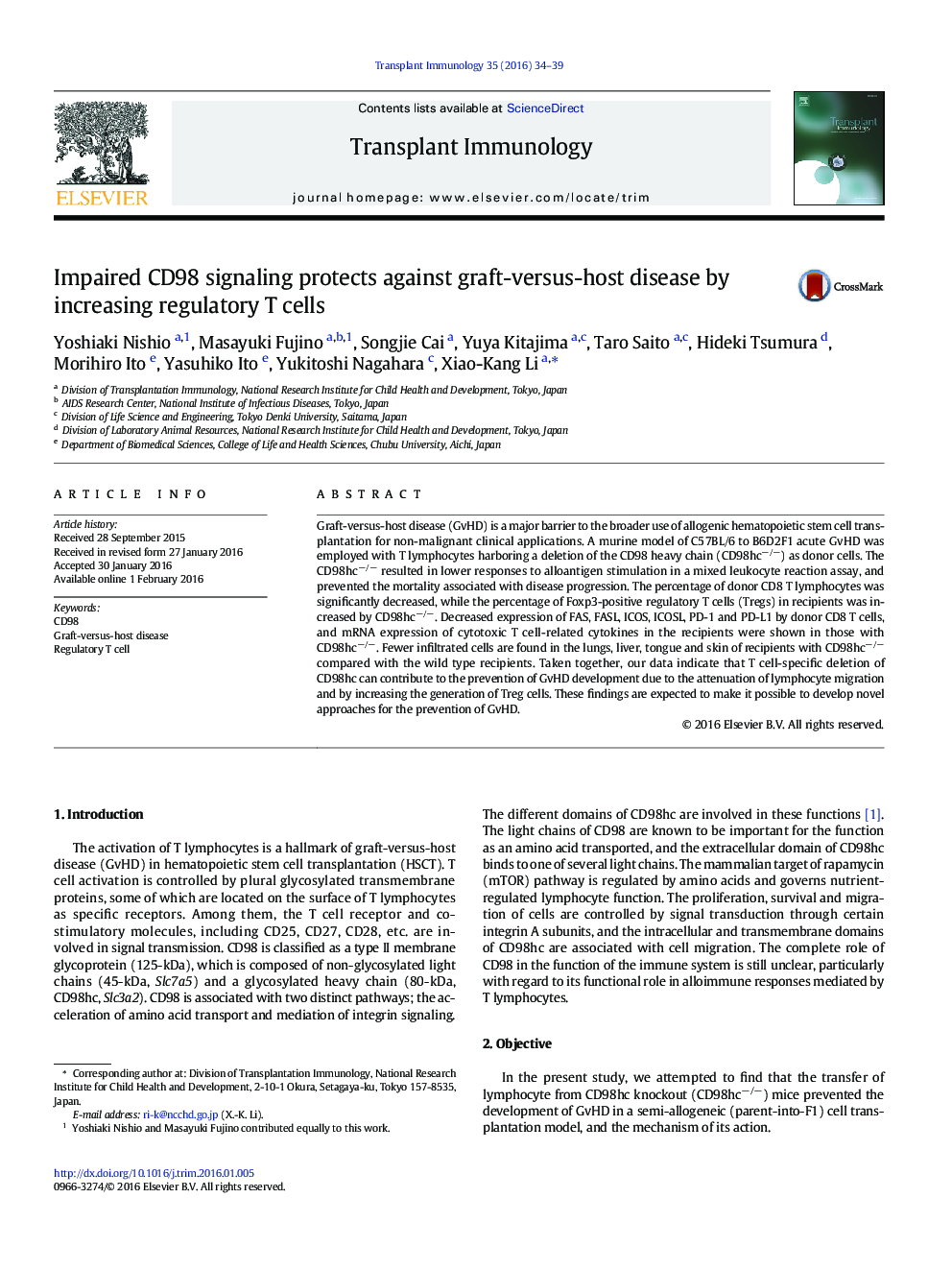| Article ID | Journal | Published Year | Pages | File Type |
|---|---|---|---|---|
| 3392015 | Transplant Immunology | 2016 | 6 Pages |
•CD98 heavy chain (CD98hc) is crucial for the development of acute graft-versus-host disease.•CD98hc deficiency in T cells is involved in increasing regulatory T cells.•CD98hc deficiency attenuates the expression of cytotoxic T cell-related molecules.
Graft-versus-host disease (GvHD) is a major barrier to the broader use of allogenic hematopoietic stem cell transplantation for non-malignant clinical applications. A murine model of C57BL/6 to B6D2F1 acute GvHD was employed with T lymphocytes harboring a deletion of the CD98 heavy chain (CD98hc−/−) as donor cells. The CD98hc−/− resulted in lower responses to alloantigen stimulation in a mixed leukocyte reaction assay, and prevented the mortality associated with disease progression. The percentage of donor CD8 T lymphocytes was significantly decreased, while the percentage of Foxp3-positive regulatory T cells (Tregs) in recipients was increased by CD98hc−/−. Decreased expression of FAS, FASL, ICOS, ICOSL, PD-1 and PD-L1 by donor CD8 T cells, and mRNA expression of cytotoxic T cell-related cytokines in the recipients were shown in those with CD98hc−/−. Fewer infiltrated cells are found in the lungs, liver, tongue and skin of recipients with CD98hc−/− compared with the wild type recipients. Taken together, our data indicate that T cell-specific deletion of CD98hc can contribute to the prevention of GvHD development due to the attenuation of lymphocyte migration and by increasing the generation of Treg cells. These findings are expected to make it possible to develop novel approaches for the prevention of GvHD.
